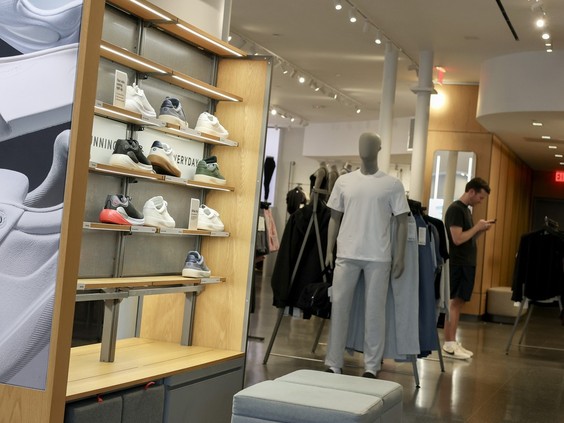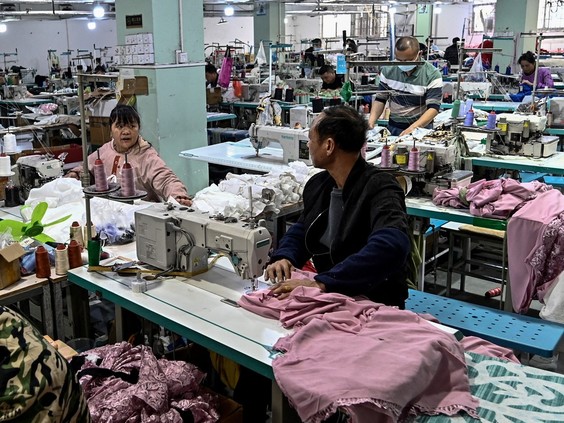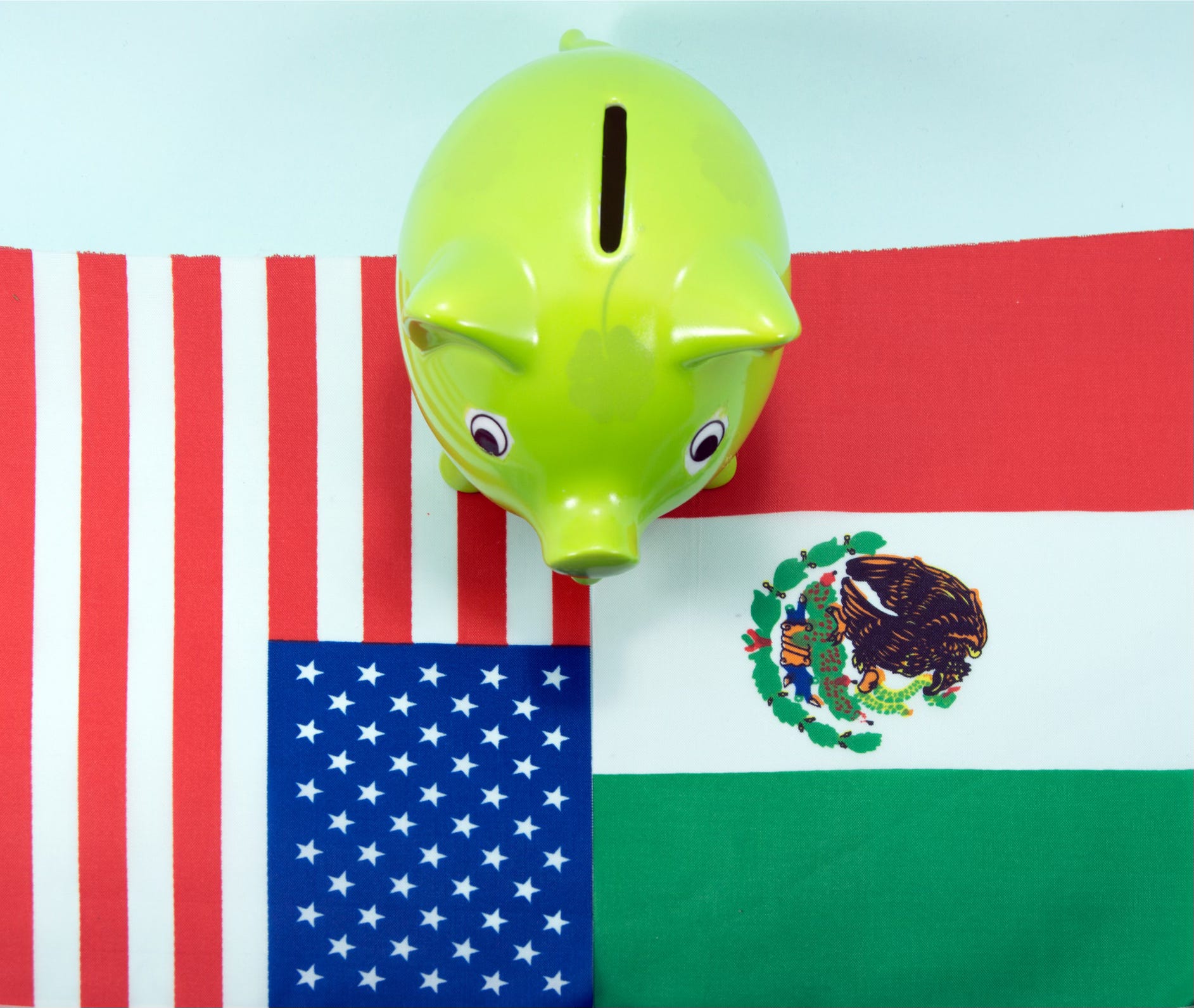Reeling International Markets ... A Trump Specialty
"The reaction from the worlds of business and finance has been swift.""Wall Street witnessed its worst two-day sell-off in the past five years last week.""International markets continued their downward trend on Monday, with Japan's Nikkei index and the Shanghai Composite Index dropping over seven percent."Jesse Kline, The National Post
 |
| A drone view of Stellantis's Chrysler Windsor Assembly facility in Windsor, Ontario, Canada, February 4, 2025. REUTERS/Carlos Osorio |
World
markets are reacting to the Trump White House announcements on
everything from its realignment of chosen allies, to its
characterization of NATO members as free-loaders on the American
military, to punishing nations across the globe for their protectionism
in trade through tariffs on American goods. A very similar protectionism
in President Trump's own 'Make America Great Again', prioritizing U.S.
jobs and production by suddenly heaping stiff tariffs on imports to the
United States worldwide, leaving all those targeted reeling, and
international markets in a confusion of utter chaos.
Business
confidence and investment, high finance hardly knows where next to look
for additional shocks to global markets. One man and his seemingly
irrational decision-making has managed to roil the world with a major
economic crisis, one that threatens to take not only the countries he
has targeted into recession, but the United States as well. It was,
after, all, North American and European consumers that decided they
preferred to buy manufactured goods produced in cheap-labour markets and
their buying power bypassed home-produced goods effectively shutting
down factories in favour of inexpensive overseas-produced goods ranging
from kitchenware to footwear, bedding and clothing.
 |
There
have been a plethora of tariff statements linked to specific dates,
complicated by second-thought reprieves which simply had the effect of
destabilizing markets even more, and leaving economists and trade
authorities in the dark over what next to expect from a mercurial
president of the powerful United States of America. Universal tariffs
ranging from ten to 49 percent set to come into effect on the 10th of
April have now been temporarily suspended, once again. When they are
reinstituted they will be applied to imports from 180 different
countries.
In
Canada, America's northern neighbour, President Trump's order to
carmakers that he expected manufacturing to return to the United States
and the closure of U.S. manufacturing plants in Canada and Mexico to
facilitate that move, one that in practical terms will raise the price
of the finished product to bite the bank accounts of Americans, yet a
transition that would take years in the making, to undo a complex system
of established integrated manufacturing between the U.S., Canada and
Mexico, both of which Mr. Trump accuses of ripping off America.
Automaker
Stellantis last week announced its production pause at two of its North
American plants -- one in Canada, affecting 3,200 employees, the second
in Mexico where 900 workers are to be laid off at five U.S. factories.
Canada, as a result of this turmoil, lost 33,000 jobs in March and even
greater numbers of full-time jobs. So that's how America's partners in
the CUSMA Free Trade agreement are faring at the present time.
 |
| Employees working in a clothing sewing workshop in Guangzhou, China’s southern Guangdong province. Photo by PEDRO PARDO /AFP via Getty Images |
And
in the United States, textile and footwear industries have warned that
97 percent of the clothing and footwear sold in the U.S. are imported;
the new tariffs on textile-producing countries like Vietnam, Cambodia
and China could raise prices by over 50 percent. With free trade,
offshoring and strong competition keeps prices down, leaving U.S.
consumers with stable pricing on goods over extended periods of time.
An
average car cost is likely to rise between $5,000 to $10,000. These new
tariffs are set to cost American households an estimated $1,900 for
starters this yer, according to the Tax Foundation think tank; "the largest tax hike since 1982".
President
Trump's endgame is to force production in manufacturing back to the
United States as it was before the global community gave its complacent
blessing to China to become a colossus of manufacturing, flooding the
world with cheap products to please the ordinary consumer focused on
cost to the exclusion of closing down their own job markets. In his
determination to haul production back home, some matters have not been
taken into account.
Such
as the fact that the low-skilled workforce in the United States no
longer exists; goods currently made in developing countries in economies
of scale will not be reproducible in the U.S. Even as the Trump White
House is sending notices to temporary residents of the U.S. that their
freeloading on the U.S. taxpayer is over and millions of undocumented
immigrants are being rounded up and returned to sender. Is the U.S.
prepared to reduce its high minimum wages to challenge the low wages
received by skilled workers in 'undeveloped' countries of the world?
Another
example was brought to the fore when the Footwear Distributors and
Retailers of America contacted the new U.S. Trade Representative
informing him that the typical shoe contains 70 materials that cannot be
sourced within the United States. Even should American companies begin
producing domestic footwear, tariffs would still apply on many of the
raw materials they would have to import to produce footwear.
And
then there's the issue of moving automobile production back to the
United States. Transplanting auto part producing factories and vehicles
would take years to come to fruition. American-made vehicles also
contain thousands of components sourced world-wide. For producing
companies to make long-term reshoring plans they would be risking
hundreds of millions at a time of uncertainty and instability; both
complicating economic conditions the Trump administration has made
itself known for.
 |
| Getty Images |
Labels: Canada, Carmakers, Garment Manufacturers, Global Economic Fallout, Mexico, President Donald Trump, Tariffs on Imports to US, Trade Agreements
0 Comments:
Post a Comment
<< Home